Experts speak up on serious risk of teenagers suffering from concussions
More than 20 children per week are being treated for concussions at one Melbourne clinic amid a call for more caution over kids suffering from head knocks. See the experts’ six-point plan for concussion recovery here.
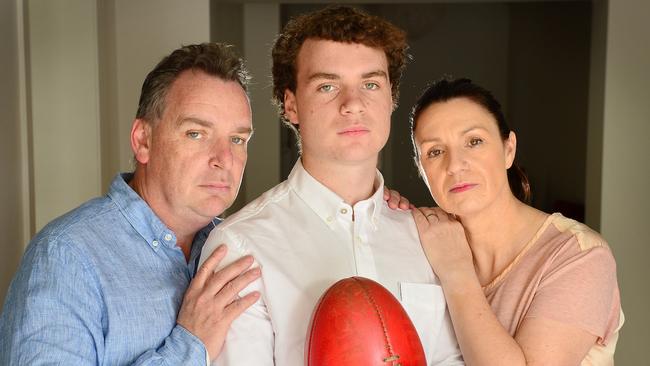
A Melbourne clinic is treating more than 1000 teenagers a year for concussion amid fears of the “potentially catastrophic’’ effect of them ignoring sports head injuries.
The specialist unit at the Murdoch Children’s Research Institute treats more than 20 children for concussion a week, and even more during the footy season.
But director of clinical sciences, Vicki Anderson, said about 75 per cent of people “don’t even bother to do anything about it’, raising concerns about that children with head injuries returning to sport prematurely.
With teens at greater risk of depression, anxiety and further injury if they suffer repeated concussion, there are calls for clearer guidelines for junior players and better training for grassroots staff.
“This is such an issue and even though all the sporting codes have really good, evidence-based guidelines on their websites, no one ever looks at that stuff,’’ Dr Anderson said.
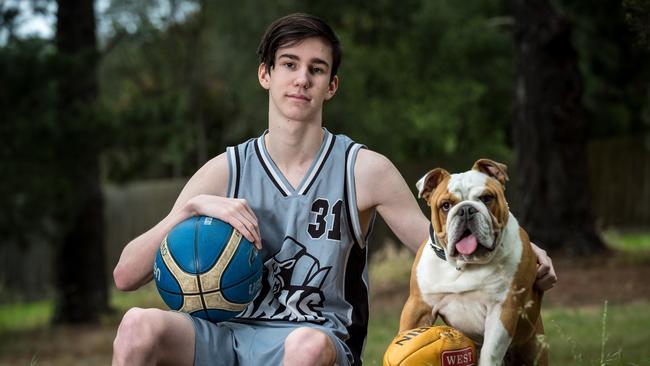
As experts prepare to meet in Paris next year to discuss a global approach to concussion, researchers have given the Sunday Herald Sun a six-point plan families can follow.
It comes after former AFL player Shaun Smith on Saturday revealed in the Herald Sun the toll that repeated concussions took on his health.
Dr Anderson — the International Neuropsychological Society president — said global guidelines suggested teens take a “graded return’’ to contact sport after concussion.
“What we know is that too much rest and too much doing nothing gives kids too much time to think and so often they end up having psychological symptoms,’’ she said.
“So anxiety and depressive symptoms are not uncommon.’’
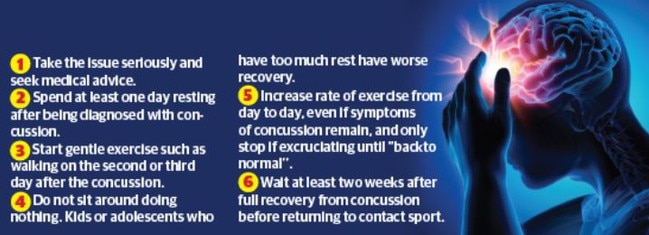
Amid calls for more Australian research and funding from sporting bodies such as the AFL, one of Australia’s top brain experts said teens returning prematurely from head knocks could be killed.
Neuroscientist and La Trobe University Associate Professor Alan Pearce said children should take four to six weeks after concussion before returning to contact sport.
“We know that if you do get concussed and don’t have a full rehabilitation, your risk of further concussion is increased almost threefold,’’ he said. “And your risk of other musculoskeletal injury like rolling an ankle or doing a shoulder is increased 2.5 fold.’’
The AFL gives community footy clubs in Victoria guidelines for trainers, first-aid providers, coaches, umpires, club officials and parents, including specific provisions for children aged five to 17.
But experts say the guidelines should go further.
Research published in the British Medical Journal states that adolescents take longer to recover from concussion than adults.
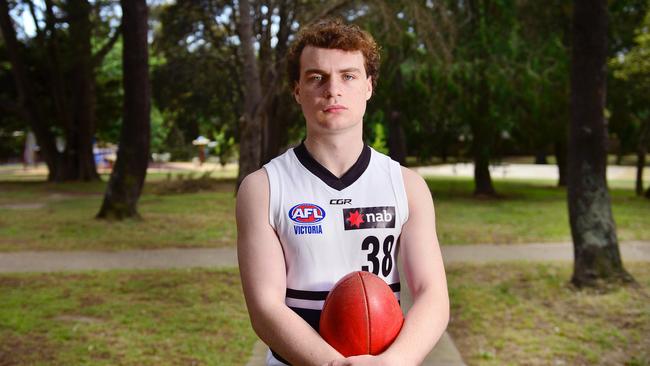
RELATED NEWS:
FENECH: BOXERS CONCUSSED THREE TIMES A WEEK
TOP PICK MCCARTIN STEPS AWAY FROM FOOTY
And a 2015 federal government report revealed that depression in teens can be exacerbated by blows to the head. Prof Pearce said there were links between brain injury, depression, anxiety and irritability.
“While rare, for children and adolescents in particular, the risk of a second impact is potentially catastrophic,’’ he said.
“Whenever you see a kid dying — and I don’t want to sensationalise it — but the risk of death is increased if they get a second concussion in that critical period of seven to 10 days after a concussion. The last thing you want is to tell a parent their child has died playing a sport they love.’’
He said the simple message to teen athletes should be: “if in doubt, sit it out’’.
While football codes have begun implementing stricter concussion guidelines, AIS chief medical officer David Hughes said teens should be treated with more caution.
“The group of adolescents, from 14 to 18 years, seem to be particularly at risk of having prolonged recovery, so most guidelines around the world will recommend that you be more cautious with return to play with adolescents,” Dr Hughes said.
The Herald Sun this year revealed concussion among footballers aged 15-17 had increased threefold in recent years, with research revealing a spike in grassroots Aussie rules injuries.
FOOTY BLOWS TAKE MAJOR TOLL ON TEENS
Melbourne teens Ethan Cheesewright and Weston Airs are no longer allowed to play the game they love.
While they don’t know each other, the former junior footy stars have both been given the same doctor’s orders to hang up their boots after copping concussions.
And both have warned junior athletes against following in their footsteps and risking serious injury by prematurely returning to the sporting field.
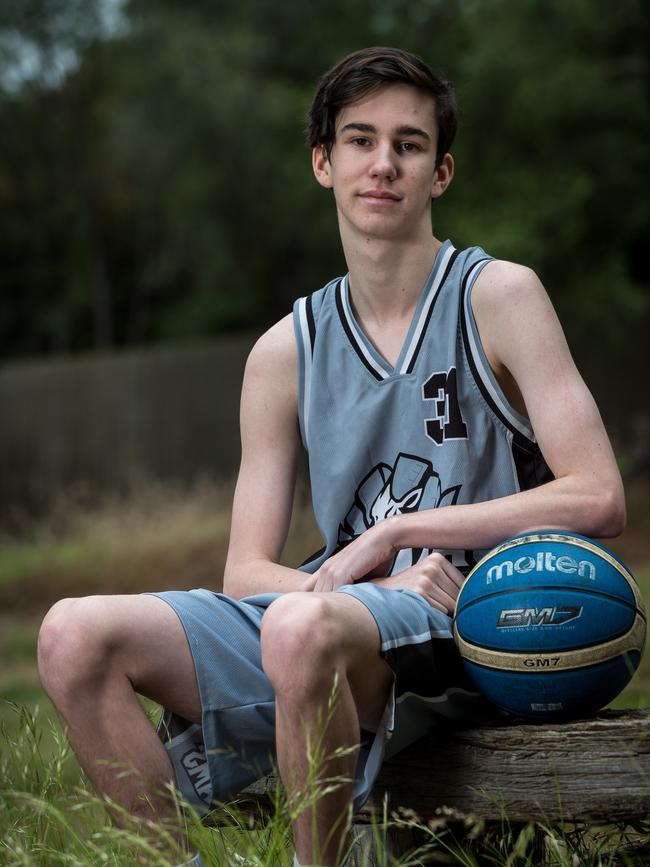
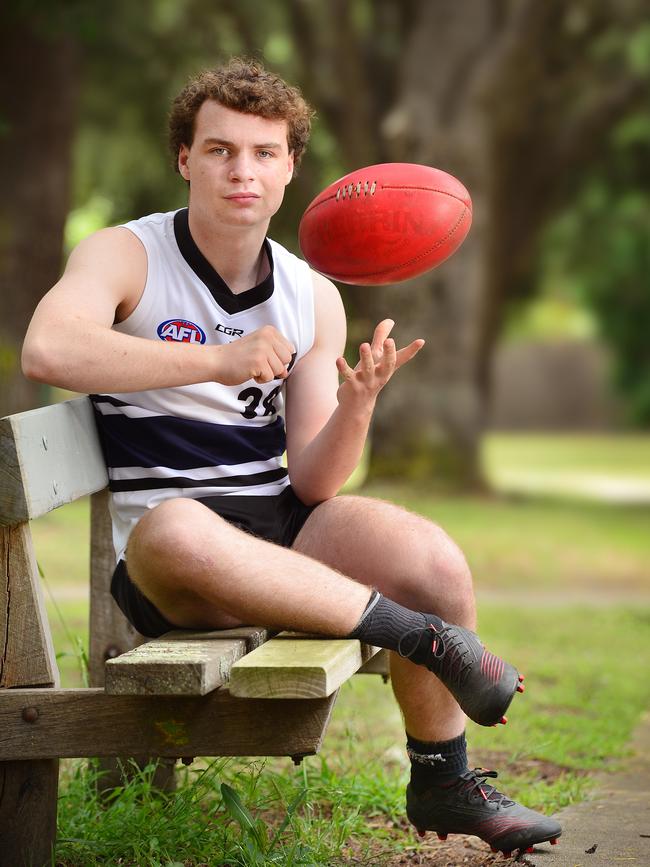
Like many teens, Cheesewright dreamt of playing AFL and felt “on top of the world’’ when he was picked in the Vic Metro squad. But after a fourth concussion in April this year, following his first in under-15s footy in 2017, the 17-year-old knew he had to give up the game for good.
“It’s OK at the top level but but in juniors the response to concussion is really poor,’’ he said. “Coaches know nothing about it — they just say to get back out there.’’
Before being knocked unconscious and suffering several concussions on the footy field, Airs played sport every day. Now he is dealing with the side effects of head injury first caused from a sling tackle on the footy field that left him unconscious for more than nine minutes.
“After further scans and tests, my doctor told me I can no longer play football or contact sport, as one more knock may cause major damage to my brain,’’ he said.
“I was really upset by this but not something I wanted to talk to anyone about.
His mum, Kerryn, said Weston had lost confidence and feared he would “never be the same” after suffering “ongoing cognitive symptoms, particularly poor concentration and memory’’. “He spends most weekends in his room as he can’t handle noise,” she said.
Her advice to parents was to take concussion seriously. “Go straight to an expert,’’ she said.
